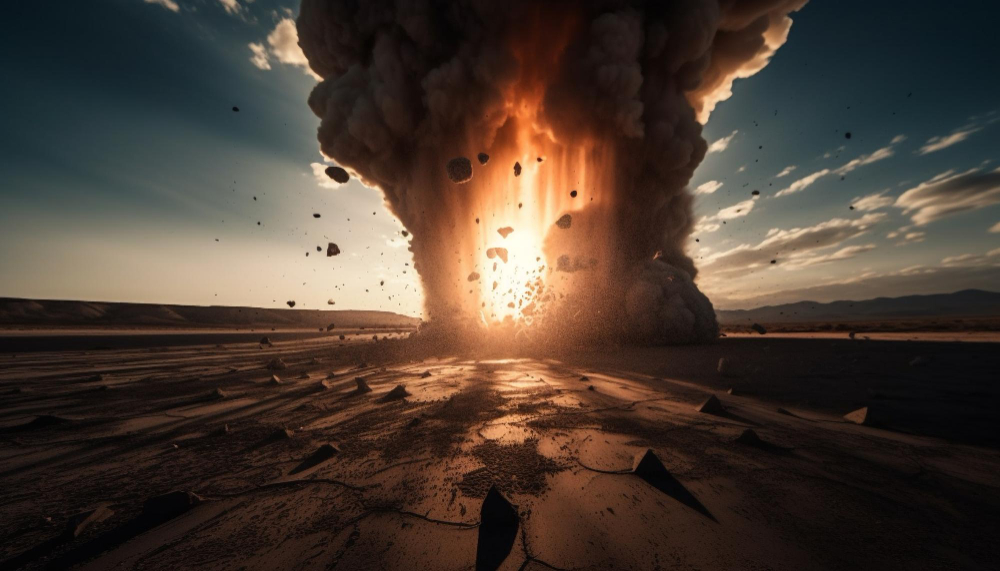The End of the World: A Thoughtful Exploration into Humanity’s Existential Dilemma
In the grand tapestry of existence, there exists a question that has intrigued, fascinated, and haunted humanity for centuries: When will the world end? This query has been a source of endless speculation, fear, and wonderment, leading to a myriad of theories, predictions, and doomsday scenarios. From religious prophecies to scientific conjectures, the concept of the world’s end captivates the human imagination, invoking a deep-seated curiosity about our planet’s ultimate fate.

Human civilization has long been fixated on the prospect of an apocalypse. Countless cultures, religions, and belief systems have foretold tales of an impending cataclysm, offering a spectrum of theories about how the world might meet its end. Some foresee a fiery demise brought about by natural disasters, while others anticipate a gradual decline due to human-induced environmental catastrophes. Apocalyptic scenarios range from cosmic collisions to technological disasters, prompting contemplation on the vulnerability and impermanence of our world.
Among the numerous prophecies and hypotheses, religious texts have often served as wellsprings of speculation about the end times. Various faiths describe eschatological events, predicting an ultimate reckoning or renewal. For instance, Christian beliefs encompass the idea of Armageddon and the second coming of Christ, while Hinduism outlines cycles of creation, destruction, and rebirth within the concept of Yugas. Similarly, Islamic tradition speaks of Qiyamah, the day of judgment, signifying the world’s end and the beginning of the afterlife. These beliefs, steeped in myth and spirituality, contribute to the diverse narratives surrounding the end of the world.
Contrastingly, scientific theories offer a rational yet equally daunting perspective on the world’s demise. Astrophysical events such as supernovae, gamma-ray bursts, or the eventual expansion of our sun into a red giant are potential natural phenomena that could bring about the extinction of life on Earth. Additionally, existential threats like climate change, nuclear warfare, or pandemics underscore humanity’s self-inflicted vulnerabilities, raising pertinent concerns about our impact on the planet and our collective future.
Despite the vast array of hypotheses and beliefs, the question of when the world will end remains shrouded in uncertainty. While some predictions point to specific dates based on interpretations of ancient texts or scientific projections, the veracity of these claims remains highly speculative. The inherent unpredictability of natural phenomena and human actions further complicates any precise estimation about the world’s end.
However, the contemplation of our world’s ultimate fate serves as a potent reminder of our responsibility toward the planet and each other. Whether the end is near or far, the imperative to cherish and safeguard our planet remains unchanged. Humanity’s role in mitigating environmental degradation, preventing global conflicts, and advancing scientific endeavors underscores our capacity to shape the future.
In the face of such profound uncertainty, embracing a mindset of preparedness and resilience becomes crucial. Rather than fixating solely on doomsday scenarios, focusing on solutions, sustainability, and fostering a global sense of community is pivotal in navigating the challenges that lie ahead.
The end of the world, while a subject of fascination and apprehension, also serves as a catalyst for introspection and action. It prompts us to reflect on our collective values, societal structures, and the fragility of life itself. Embracing this uncertainty can encourage a deeper appreciation for the present moment and a commitment to creating a more sustainable and harmonious world for future generations.
In conclusion, the question of when the world will end remains an enigma, intertwined with myriad beliefs and scientific conjectures. Yet, amidst the uncertainty, it’s the collective responsibility of humanity to cherish our world, strive for harmony, and work towards a future that transcends apocalyptic visions. By fostering unity, compassion, and a shared commitment to the well-being of our planet, we can shape a world that perseveres despite the uncertainties that lie ahead.